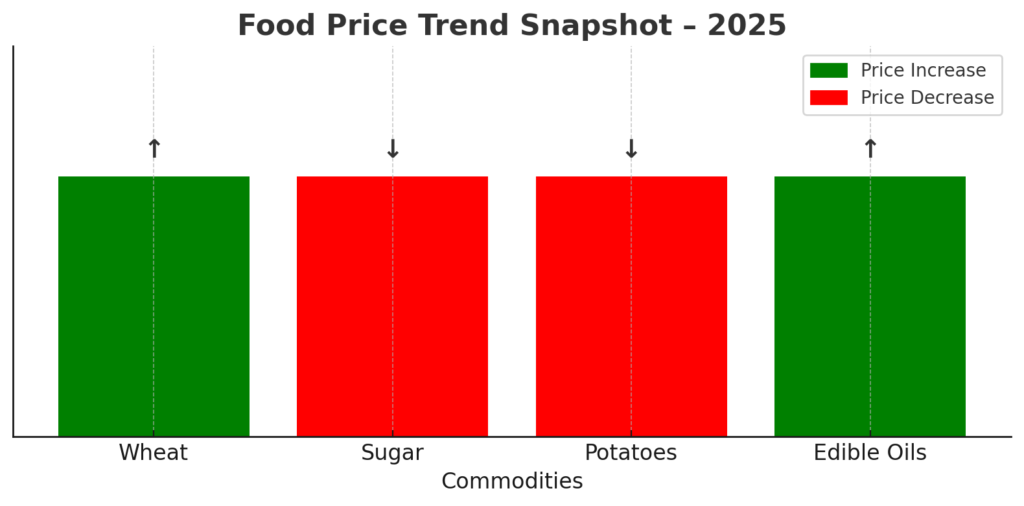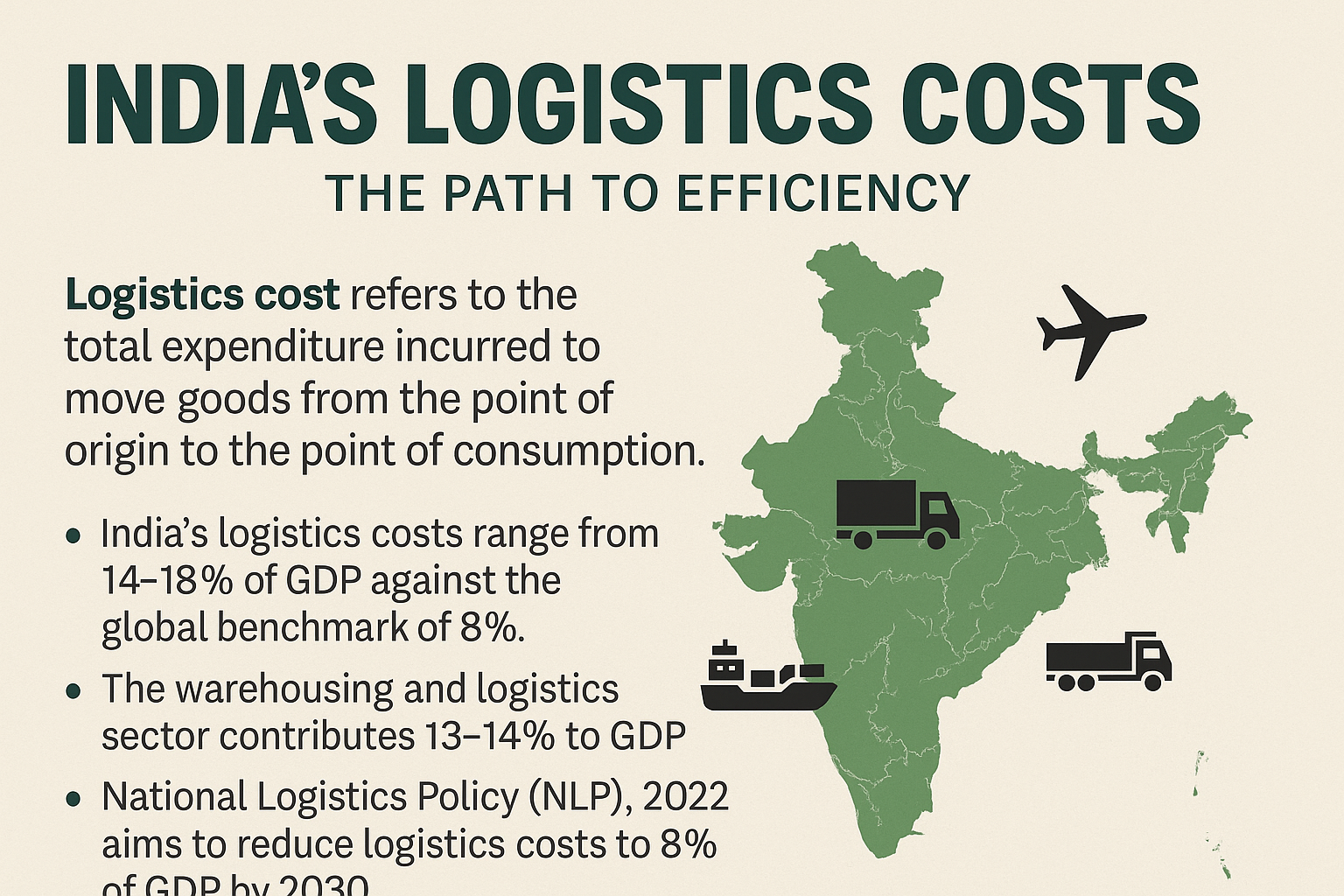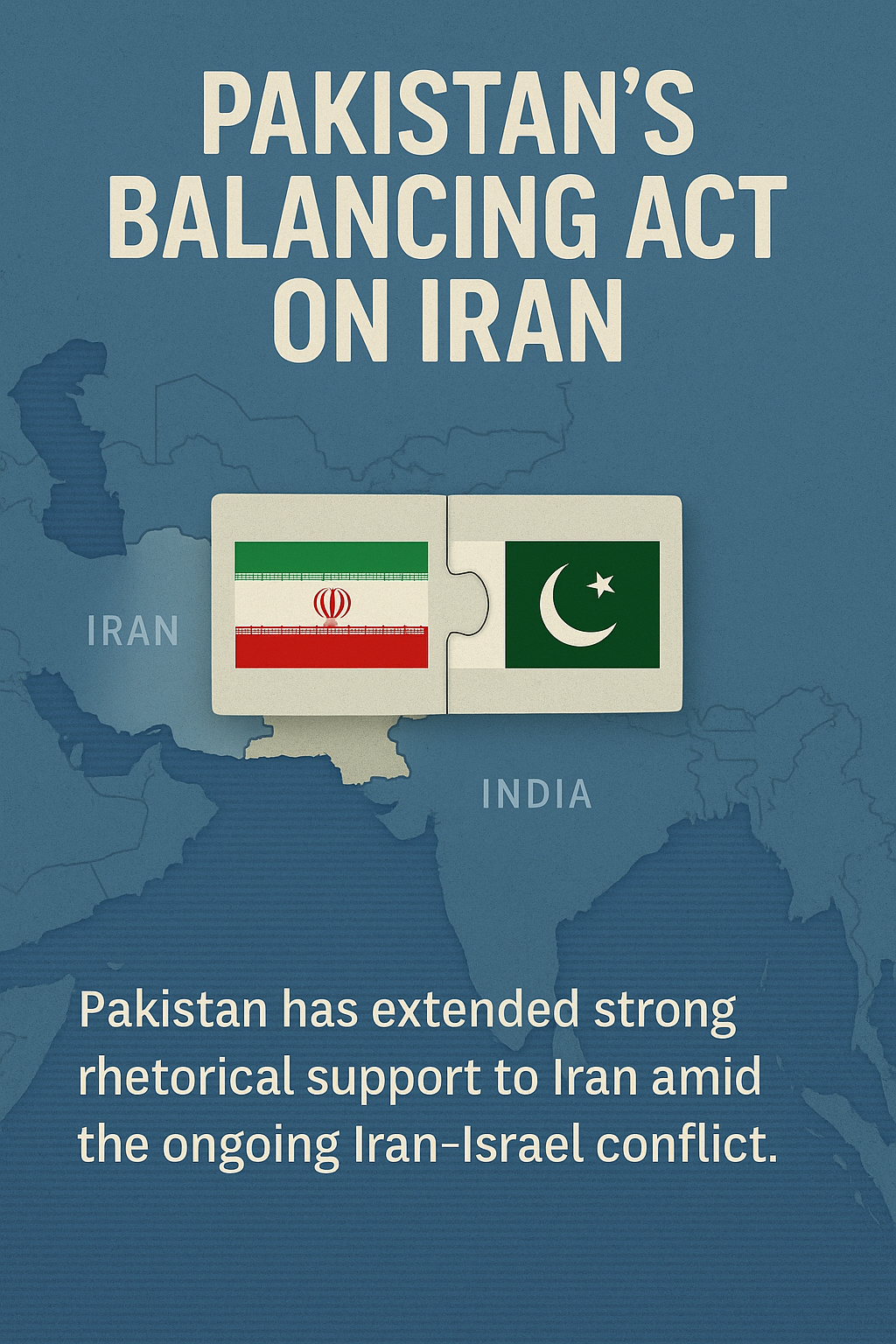072.
Economy & Agriculture
Retail Food Inflation Eases to 8.39%: Trends, Causes & Future Outlook
India’s retail food inflation dipped to 8.39% in December 2025, down from 9.04% in November and 10.87% in October, offering temporary relief to consumers. While this marks a positive turn, future trends remain heavily dependent on weather patterns, crop output, and global supply chains.
🌾 Agricultural Snapshot: Mixed Signals from Rabi Season
| Crop | Area Sown (2025) | Trend/Impact |
|---|---|---|
| Wheat | 320 lakh ha | Up from 315.63 lakh ha last year—good for supply |
| Chickpeas, Maize, Potatoes, Onions, Tomatoes | Increased | Driven by surplus monsoon, better groundwater |
| Mustard | Decreased | May push edible oil prices higher |
🌡️ Climate & Yield Concerns
- Delayed sowing and potential early summer may harm wheat yields.
- Ideal grain-filling temperature: Low 30s °C in March.
- High temperature risks could reduce grain quality and output.
🧂 Food Price Trends


🧁 Wheat
- Stock: 184.11 lakh tonnes – 5th lowest since 2008
- Prices: ₹3,150–₹3,200/quintal in Delhi vs ₹2,550–₹2,600 last year
- Reason: Low open market sale by govt + harvest uncertainty
🍬 Sugar
- Production projected to fall to 270 lakh tonnes from 319 lakh tonnes
- States affected: Maharashtra, UP – drought & early flowering reduce sucrose
🥔 Potatoes
- Early heat → delayed planting
- Later improvements → larger tubers, better yield
- Prices falling, supply improving
🛢️ Edible Oils
| Oil Type | Price (per kg) |
|---|---|
| Palm Oil | ₹145 |
| Soyabean Oil | ₹155 |
| Mustard Oil | ₹165 |
- Reasons: Import duty, Indonesia’s palm policy, lower mustard sowing
⚠️ Key Drivers of Food Inflation
🔥 Weather Events
- Poor monsoon, heatwaves → crop damage
- Cereals & pulses inflation crossed 10% in April 2024
⛽ Fuel Costs
- 1% rise in fuel inflation → 0.13% rise in food inflation (over 12 months)
- Fuel drives transportation, irrigation, and machinery costs
🚛 Supply Chain Disruptions
- Affected vegetables most: 27.8% inflation for 6 months
- Cold storage, logistics gaps → spoilage and price spikes
🌍 Global Factors
- India imports 60% of pulses & edible oils
- Global-to-local price transmission is limited
- Russia-Ukraine war, palm oil changes affected supply
📊 Understanding Inflation Metrics
| Index | Measures |
|---|---|
| CPI | Retail price inflation (includes food) |
| CFPI | Specifically for food prices |
| WPI | Bulk pricing (used by producers) |
🧠 Inflation Types
- Demand-Pull: Too much demand, not enough supply
- Cost-Push: Rising input costs → higher final prices
- Wage-Price Spiral: Wages up → prices up → loop continues
🛠️ Government Measures
✅ Subsidies: Cheaper onions, tomatoes, wheat, sugar
✅ Export Bans: Wheat (May 2022), broken rice (Sep 2022)
✅ Stock Limits: Prevent hoarding
✅ Import Duty Cuts: Pulses and edible oils
✅ Operation Greens: Price stabilisation for Tomato, Onion, Potato
✅ MEP: $800/ton minimum export price for onions
🧩 Long-Term Strategies to Tame Inflation
- 💡 Improve Storage & Transport – Cold chains, rural logistics
- 🌱 Encourage Crop Diversification – Millets, pulses
- 🌾 Boost Productivity – Smart irrigation, seed R&D
- ⚙️ Leverage Tech – Tools like AmbiTag for spoilage control
- 📉 Monitor Prices – Regular data to set MRPs
- 🌧️ Climate-Adapted Agriculture – Rainwater harvesting, crop rotation















